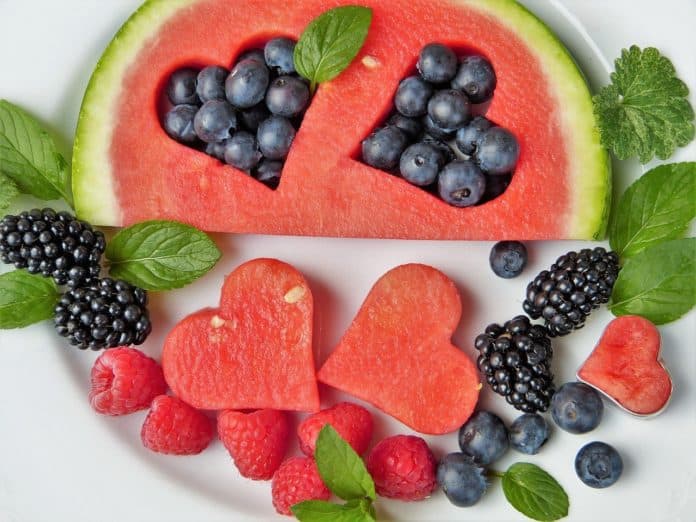Vitamins are accessory food factors that are organic in nature and cannot be synthesised by the body.
Thus, it must be supplied in the form of a diet or other supplements to maintain health, growth and state of well being of a person.
Some vitamins like Vitamin K and Vitamin B are synthesised by the bacteria in the intestine.
Vitamin B is water-soluble, which means it requires water for its absorption and metabolism.
And as a water-soluble vitamin, it can be excreted out with water so there are high chances of deficiency.
There are nine forms of vitamin B, all of which are required to help our body function normally.
Let’s take a brief look at the forms of Vitamin B.
Also read: The Magic of Omega 3: Must read
Vitamin B1 or Thiamine
It is required for neural signal passage.
Deficiency can cause neurological changes, beriberi and Wernicke’s encephalopathy.
Good sources of thiamine are whole grains like jowar, rye, wheat bran and wheat germ, red rice, lean organ meats, eggs etc.

Vitamin B2 or Riboflavin
Also called vitamin G or yellow enzyme, riboflavin is important in breaking down of carbohydrates, fats and amino acids.
It is also important for vision (stimulation of optic nerve) and synthesises RBC in the bone marrow.
Deficiency may cause cheilosis ulcers and cracks on lips, angular stomatitis – cuts and redness at the angles of lips, glossitis – redness, swelling and burning sensation of the tongue, photophobia, dermal lesions, depression, stress and anaemia etc.
Good sources of riboflavin are organic A2 milk, milk products, egg, lean meat, green leafy vegetables etc.
Vitamin B3 or Niacin
Formerly known as nicotinic acid, it is important for the proper functioning of the gastrointestinal tract (GIT), nervous system and skin.
It helps in the release of adrenaline or nor-adrenaline hormones that plays an important role in BP regulation.
Deficiency can cause pellagra, the disease of four Ds: Dermatitis (skin disease), diarrhoea and dementia (forgetfulness) leading to the fourth D – death.
Foods rich in niacin are organic lean poultry products, organic A2 milk, avocado, nuts like groundnuts etc.
Also read: How to prevent Vitamin C deficiency
Vitamin B5 or Pantothenic acid
It is essential for the synthesis of fatty acids, cholesterol, steroid hormone, vitamin A and D.
It is also essential for the synthesis of vitamin B12 and haemoglobin.
Deficiency causes paresthesia.
Sources of B5 are organ meat, egg yolk, nutritional yeast, vegetables, organic A2 milk a milk products.
Vitamin B6 or Pyridoxine
It occurs in three major forms in food- pyridoxine, pyridoxal and pyridoxamine.
All three forms are easily digested and absorbed by the human body.
Pyridoxine is important for the processing of protein, fat and carbohydrate, RBC and WBC formation, immunity and synthesis of lymphocytes and interleukin.
Deficiency can cause oral and dermal lesions, sleep disturbance, epilepsy, Parkinson’s and convulsions, anaemia etc.
Sources are organic lean meat, fish, egg, nuts, pulses, wheat, fruits and vegetables.
Vitamin B7 or Biotin
Biotin deficiency is generally not seen in human being except under extraordinary circumstances.
In rare cases, deficiency due to medication or stress can cause hair loss, muscle pain, nausea, dermatitis etc.
Sources are organ meat like liver, organic non-GMO soybean, eggs, whole grain, legumes, nuts etc.
Biotin is also produced by our probiotics or good bacteria in the colon.
Also read: 5 signs: You need a Vitamin D test
Vitamin B9 or Folic acid / Folate
Term folate comes from foliage a material found in a spinach leaf.
It is very important for DNA and RNA synthesis — nucleic acid metabolism, normal growth and division of all cells, the formation of WBC and RBC and multiplication of blood cells, the formation of heam group of haemoglobin.
It is an important supplement for pregnant woman as they are more prone to deficiency and deficiency can cause neural tube defects, megaloblastic anaemia etc.
Folic acid is present in both animals and plants.
Fresh green vegetables, liver, pulses, whole grain products, fish, egg are good sources.
Vitamin B12 or cyanocobalamin or methylcobalamin
Vitamin B12 is important for the cellular metabolism of carbohydrates, proteins and lipids.
It is essential in the production of blood cells in bone marrow, and for nerve sheaths and proteins.
Deficiency results mainly in a anemia, memory loss and other cognitive deficits.
Vitamin B12 is naturally found in animal products, including fish, meat, poultry, eggs, milk, and milk products
By Deepika Rathod
The author is a clinical nutritionist with a focus on healthy lifestyle choices


